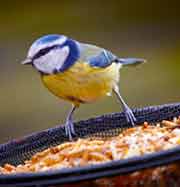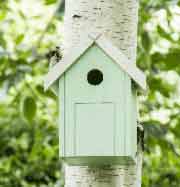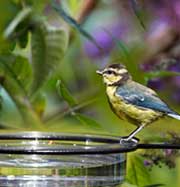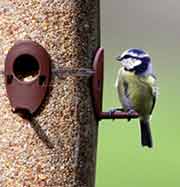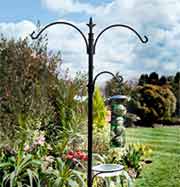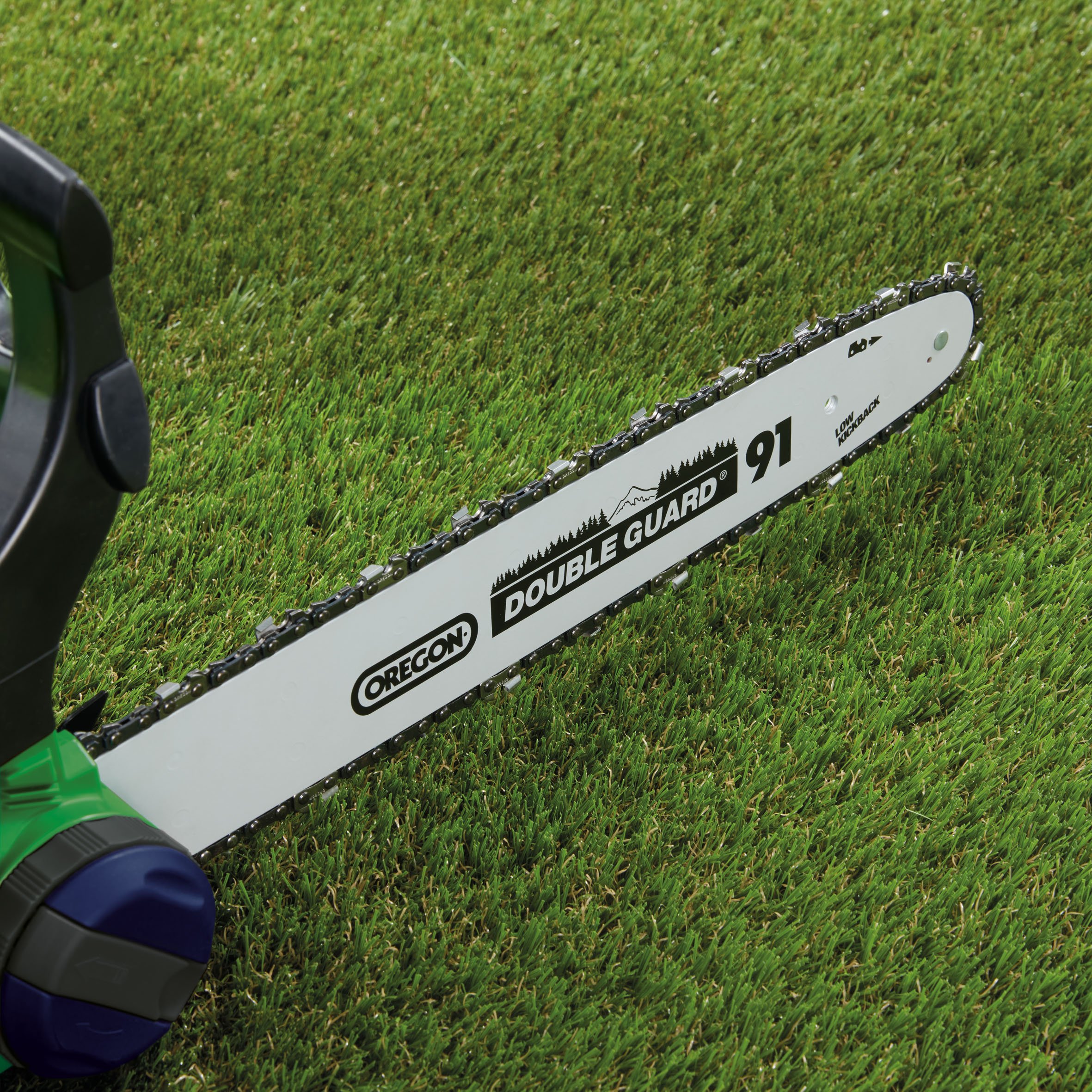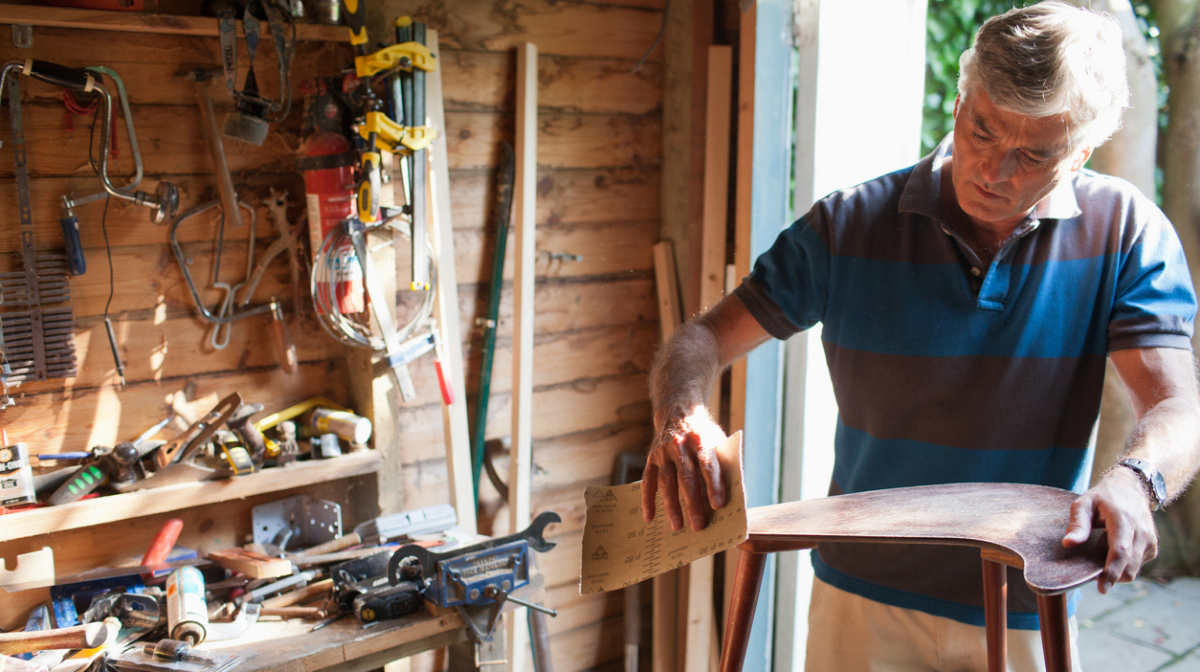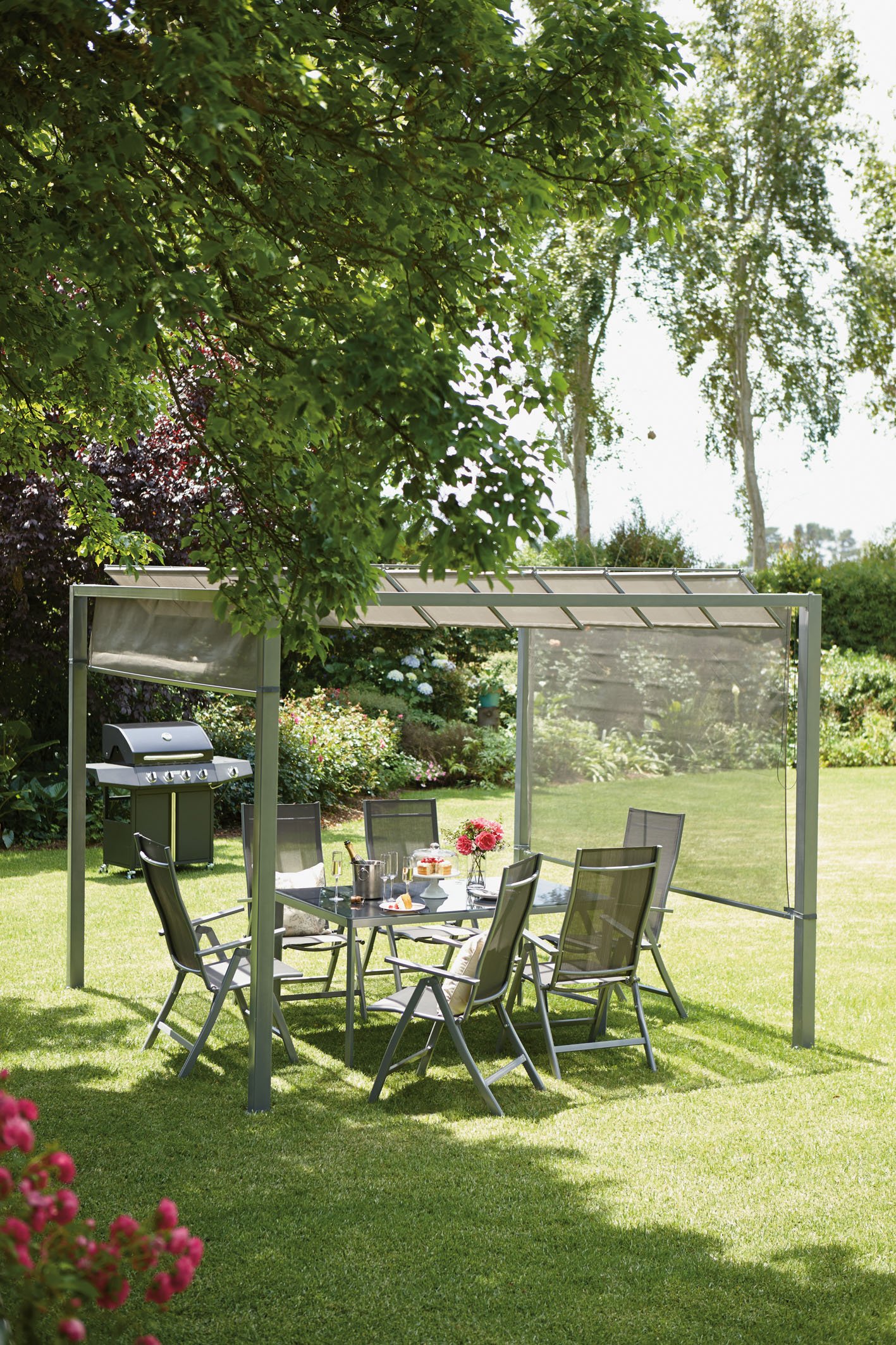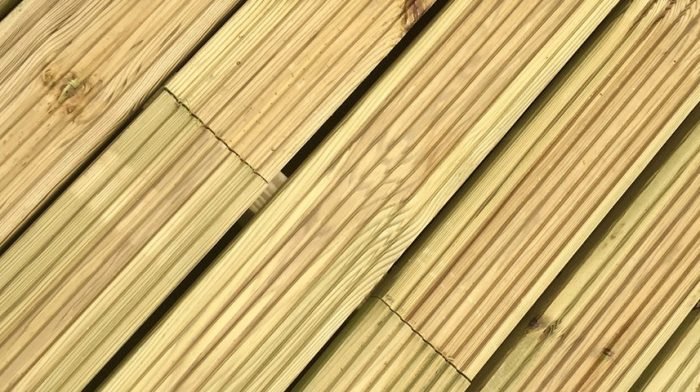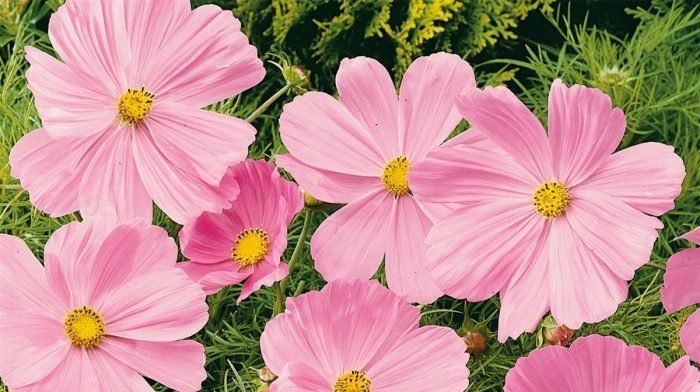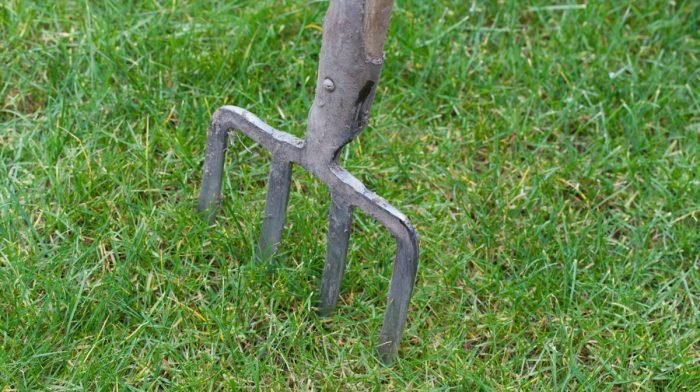Colder months can be a tough time for birds but there are a few things you can do now to help them through the winter.
Important info to remember when feeding your garden birds:
- Feed them in moderation.
- Empty feeders every 1-2 days.
- Regularly clean their feeders.
- Rotate feeding sites to avoid the build-up of waste food or droppings.
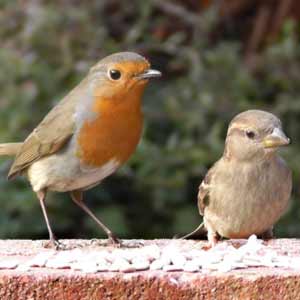
Bird food
Birds can eat the equivalent of up to two thirds of their body weight a day, and will spend most of their waking lives in search of food. During the winter months natural food sources become limited. Providing them with easily accessible food means they use less energy, and this can really help them survive the winter. Seed mixes rich in oils (such as sunflower seeds), and suet-based products provide the most calories.
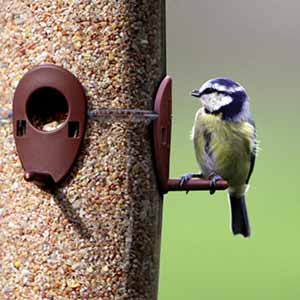
Bird tables & feeders
There are many choices and designs of feeders available, and some can be quite specialist depending on the type of food. But tables with roofs are excellent for providing large quantities of a wide variety of food, including seeds, peanuts, and even some table scraps. Tubular feeders made of tough plastic are popular because they keep seed dry, clean and safe to eat. Fine seeds such as nyjer require very small feeding ports so that it does not spill out, whilst peanuts and suet blocks require a mesh feeder.
By providing a variety of bird feeding stations, you can attract a wider range of birds into your garden. Some birds forage in the trees but blackbirds, thrushes, wrens and robins are ground feeders. You can scatter bird food on your patio/lawn but spread it out to reduce competition.
It can take a few days for birds to discover the food and to convince themselves that it is a safe place to feed. Once they have, they will visit regularly if you keep it clean and tidy. Don’t allow uneaten food to accumulate on the table as this can encourage bacteria (e.g. salmonella/E. coli) and vermin. Clean all items outside, wear gloves and don’t use the same brush for any other jobs.
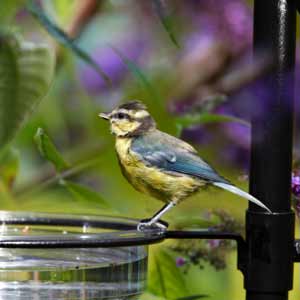
Bird baths
All birds need to drink. They also need water to help keep their feathers in good condition. Not many gardens provide birds with safe drinking and bathing facilities so whatever you can do will help.
Bird baths are the easiest option. Size doesn’t matter but a shallow dish shape is required. Put at least 2.5cm (1 inch) of water in the dish. Different depths of water (up to 10cm/4 inches) will meet the needs of different species of birds.
If the material of the bird bath is slippery when wet, put a thin layer of gravel at the bottom of the dish. Make sure you clean the bath regularly to remove any algae or bird droppings and keep it unfrozen in cold weather (never use antifreeze).
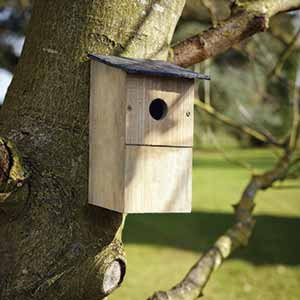
Bird boxes & houses
Bird boxes are best put up during the autumn as many non-migratory birds need a place to cosy up in winter. Add a bird box to bring birds to your garden and help keep them safe through the colder months.
The height that you choose to position your bird box will depend on which species your box is intended for. Boxes for sparrows, tits or starlings should be 2-4m up your tree or wall. Open-fronted boxes are ideal for robins and wrens but need to be below 2m and well hidden in vegetation.
Try to place the bird box somewhere where it will be shaded by a tree or building during the day. Boxes should not face strong sunlight and should be positioned away from prevailing wet winds. North-east facing entrances may therefore be best.
Make sure there are no branches or leaves in front of the entrance to ensure there is a clear flight path into the box. Clean the bird box of old nests to encourage birds to use them again the following year. Make sure you only do this between 1st August and 31st January to keep strictly within the law. As well as removing old nesting material, cleanse the inside of the box with boiling water. This will help to kill bird parasites and their eggs.
Top tops:
- Provide food regularly. ‘Your’ birds may come to depend on your generosity and may suffer if this is only intermittent.
- Place bird baths in the open, away from cover where cats and other predators may hide.
- If you have a cat, consider attaching a bell to its collar.
- Protect the food from squirrels by using squirrel proof feeders with metal fittings. Squirrels can chew through plastic fittings really quickly.



